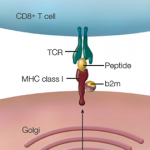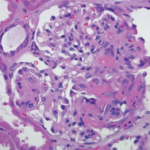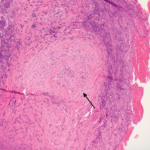In her recent editorial in Annals of the Rheumatic Diseases, Professor Maya H. Buch of the Leeds Institute and Musculoskeletal Medicine outlines a few possibilities, including the following:6
- Innate vs. adaptive: myeloid-predominant vs. lymphoid-driven pathophysiology;
- Autoimmunity vs. autoinflammatory: antibody vs. non-antibody-mediated disease; and
- Stromal response: Exposure to drug modifies the disease.
Outside the observation that these patients exist, there is almost nothing known about them. Thus, the definition of refractory rheumatoid arthritis is, necessarily, pragmatic: Professor Buch suggests failure of at least one anticytokine and one cell-targeted biologic disease-modifying anti-rheumatic drug should qualify a patient for this sobriquet. Of course, the trouble is that clinically, it can take up to a year to determine whether a patient has refractory disease, and even longer to figure out the right drug or drugs to bring the disease under control. There has to be a better approach.
Clearly, this [tumor agnostic] approach will turn into either the Facebook or the MySpace of the oncology world, & it is a little too early to say whether this approach will turn out to be the gamechanger we are all hoping for.
Agnosis as a Good Thing
In June 2017, the U.S. Food and Drug Administration granted accelerated approval to pembrolizumab for the treatment of adult or pediatric patients with metastatic or unresectable solid tumors that are microsatellite instability high, meaning they have an impaired ability to repair DNA mismatch mutations.7 In theory, because of the increased rate of DNA mismatch repair defects, these tumors produce a large number of neoantigens, which could be targeted by immune checkpoint inhibitors. Of the 149 patients enrolled across five clinical trials, 39.6% had a complete or partial response to this drug. This doesn’t seem terribly remarkable, until you realize that all these patients had in common was their genetics. Patients who received treatment with pembrolizumab had a range of tumors, including colorectal, endometrial, pancreatic and other gastrointestinal cancers.8 It didn’t matter what type of cancer you had; your genetics predicted your response.
This was the first step toward the tumor agnostic approach to oncology you have been reading about over the past year. One such drug has already received FDA approval, one is currently under consideration by the FDA, and 10 more are under development by eight companies.9
Clearly, this approach will turn into either the Facebook or the MySpace of the oncology world, and it is a little too early to say whether this approach will turn out to be the game changer we are all hoping for. There are certainly naysayers, who believe the success of this approach relies on an unusual confluence of circumstances that is unlikely to be generalizable. Others cite unpublished data that will never make the light of day because they failed to make this approach work.



